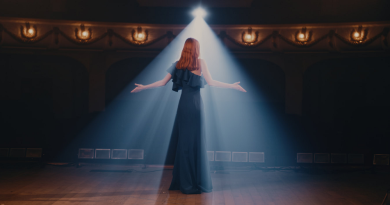Indigenous Theatre: The Rise and Impact of First Nations Stories in Australian Theatre
In recent years, Indigenous theatre in Australia has witnessed a remarkable resurgence, gaining recognition both nationally and internationally for its authenticity, creativity, and emotional depth. Rooted in ancient storytelling traditions and reflecting contemporary realities, Indigenous performances have become a powerful force in the Australian arts landscape, reshaping how audiences perceive and engage with First Nations cultures. This rise marks a significant cultural shift, as Indigenous stories move from the margins to the mainstream, bringing vital narratives to the forefront of Australian theatre.
Indigenous storytelling is an intrinsic part of Australia’s cultural heritage, with traditions dating back tens of thousands of years. Before colonization, storytelling was an oral art form used to pass down history, law, and spiritual beliefs. These stories, rich with symbolism and deep connections to the land, were shared through dance, music, and performance. Today, Indigenous theatre continues this legacy, adapting ancient practices to modern stages while retaining their cultural authenticity.
The rise of Indigenous theatre is driven by a growing recognition of the importance of First Nations voices in shaping Australia’s identity. For decades, mainstream narratives often ignored or misrepresented Indigenous perspectives, leaving a gap in the cultural record. The emergence of Indigenous-led theatre companies, such as Bangarra Dance Theatre, Ilbijerri Theatre Company, and Yirra Yaakin Theatre Company, has been instrumental in changing this narrative. These companies not only provide a platform for Indigenous artists but also foster a deeper understanding of First Nations cultures among broader audiences.
A key aspect of Indigenous theatre’s impact lies in its ability to challenge and confront historical and ongoing injustices. Productions like The 7 Stages of Grieving by Wesley Enoch and Deborah Mailman, or Black Medea by Wesley Enoch, address themes of colonization, dispossession, and resilience with honesty and courage. These works serve as powerful reminders of Australia’s colonial history while celebrating the enduring strength and adaptability of Indigenous cultures. By bringing these stories to the stage, Indigenous theatre compels audiences to engage with uncomfortable truths and fosters empathy and reconciliation.
Contemporary Indigenous theatre is also remarkable for its diversity in form and style. From traditional dance and music to experimental storytelling and multimedia performances, these productions defy conventional boundaries. Bangarra Dance Theatre, for instance, seamlessly blends traditional Aboriginal dance with contemporary movement, creating performances that are visually stunning and emotionally evocative. This innovative approach not only captivates audiences but also underscores the adaptability and vibrancy of Indigenous art.
The collaboration between Indigenous and non-Indigenous artists has further enriched the Australian theatre scene. Productions such as The Secret River, based on Kate Grenville’s novel and adapted for the stage by playwright Andrew Bovell, exemplify how collaborative efforts can create meaningful dialogues about shared histories. Directed by Neil Armfield and developed in consultation with Indigenous artists and communities, The Secret River explores the impact of colonization from multiple perspectives, encouraging audiences to reflect on their own place in Australia’s history.
Educational outreach is another vital component of Indigenous theatre’s rise. Many theatre companies work closely with schools and communities to share First Nations stories and teach younger generations about Australia’s Indigenous heritage. Through workshops, school performances, and community events, these initiatives ensure that Indigenous knowledge and culture are passed down and celebrated.
The recognition and acclaim for Indigenous theatre have extended beyond Australia’s borders. International festivals and tours have brought productions like Bennelong by Bangarra Dance Theatre to global audiences, showcasing the richness of First Nations cultures on the world stage. These opportunities not only elevate the status of Indigenous theatre but also foster cultural exchange and understanding between nations.
Despite its successes, Indigenous theatre continues to face challenges. Funding disparities, limited access to resources, and the underrepresentation of Indigenous voices in mainstream media remain persistent issues. However, the resilience and determination of First Nations artists and theatre companies have ensured that Indigenous theatre not only survives but thrives. The increasing demand for authentic and diverse narratives has further solidified its place in the Australian cultural landscape.
Looking to the future, the potential for Indigenous theatre is immense. As audiences become more open to diverse stories and perspectives, the platform for First Nations voices will only expand. Emerging playwrights, directors, and performers are already pushing the boundaries of storytelling, exploring new themes and mediums that reflect the evolving realities of Indigenous communities. These contributions will undoubtedly continue to shape and enrich Australian theatre.
Indigenous theatre is not merely entertainment—it is a vital expression of cultural identity, resilience, and truth-telling. By amplifying First Nations voices and stories, it challenges audiences to reconsider their understanding of Australia’s past and present. In doing so, Indigenous theatre serves as both a celebration of cultural heritage and a catalyst for change, ensuring that the stories of Australia’s First Peoples remain at the heart of the nation’s artistic and social discourse.



